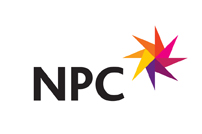Medical research charities have received the backing from more than 60 scientists in their bid to halt a “catastrophic fall in charity research funding” due to Covid-19
The scientists, in areas including cancer research and treating cardiovascular disease, have written an open letter to Prime Minister Boris Johnson calling for urgent support for this area of the charity sector.
It calls on the government to “take swift action” to investment in a Life Sciences-Charity Partnership Fund that will “protect the vital and unique contribution charity-funded biomedical research makes to the UK’s R&D ecosystem and wider economy”.
The move comes as the NCVO warns in its 2020 Almanac that many charities are left vulnerable through an increasing reliance on public fundraising and less on government funding.
British Heart Foundation (BHF) medical director Professor Sir Nilesh Samani said: “The call for a Life Sciences - Charity Partnership Fund, now backed by many of the country’s most eminent scientists, is about far more than supporting charities.
“It would represent a Government investment in UK research, returned many times over in terms of the world leading scientific discoveries it enables, the fuel it provides to the UK economy, and the lives that will be saved through the treatments and cures that will follow.”
Charity infrastructure body the Association of Medical Research Charities and 151 of its charity members, are also backing the call for more funding. The AMRC estimated that funding for the medical research sector has dropped by £310m this financial year.
The BHF currently supports £446m worth of research at 47 institutions across the UK. Meanwhile Cancer Research UK (CRUK) spent £442m in 2018/19 on cancer research.
The letter from the medical experts to the Prime Minister added: “The funding provided by charities plays a unique role within the wider funding mix, supporting high-risk discovery science that drives the breakthroughs in our fields (and others), as well as de-risking projects to attract commercial investment and supporting clinical trials that bring the latest innovations and life-saving treatments to patients.
“Charity funding invests in skills and has supported many of us earlier in our careers, allowing us to continue to build our expertise within the UK system, adding to the strength of its research base and building the U.K’s global reputation for research excellence.
“However, both the BHF and CRUK are now seeing their incomes decimated by the COVID-19 pandemic.”
Latest News
-
NCVO CEO to lead Shelter
-
Starting point for using AI 'has to be your legal duties', expert warns charities
-
'Waxing lyrical about volunteering' among young people pays off, research finds
-
Children’s charity appoints first head of fundraising.
-
Businessman set up charities to siphon off £270,000 in Gift Aid payments, regulator finds
-
Women and girls’ charities face a ‘looming crisis’ due to demand surge
Charity Times video Q&A: In conversation with Hilda Hayo, CEO of Dementia UK
Charity Times editor, Lauren Weymouth, is joined by Dementia UK CEO, Hilda Hayo to discuss why the charity receives such high workplace satisfaction results, what a positive working culture looks like and the importance of lived experience among staff. The pair talk about challenges facing the charity, the impact felt by the pandemic and how it's striving to overcome obstacles and continue to be a highly impactful organisation for anybody affected by dementia.
Charity Times Awards 2023
Mitigating risk and reducing claims

The cost-of-living crisis is impacting charities in a number of ways, including the risks they take. Endsleigh Insurance’s* senior risk management consultant Scott Crichton joins Charity Times to discuss the ramifications of prioritising certain types of risk over others, the financial implications risk can have if not managed properly, and tips for charities to help manage those risks.
* Coming soon… Howden, the new name for Endsleigh.
* Coming soon… Howden, the new name for Endsleigh.
Better Society

© 2021 Perspective Publishing Privacy & Cookies










Recent Stories